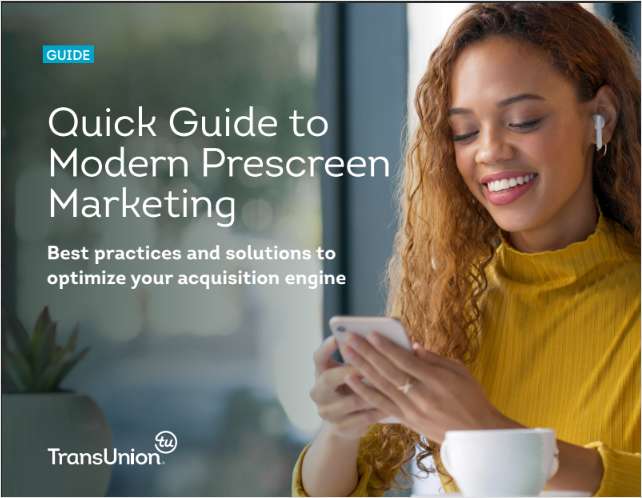Credit unions talk a good game about wanting to serve low-income populations.
But do they really?
Will regulators and insurers even let them?
The topic has been on my mind lately, and the 2013 Community Development Financial Institutions Fund announcements earlier this week brought it to the forefront.
I think many in the industry tend to think about the CDFI awards like I do: as an opportunity for more business and revenue. Sure, you help people along the way, but let's be honest: your balance sheet is the top priority.
Helping poor people is a thankless job. It brings to my mind a scene from The Simpsons. Idealistic do-gooder Lisa brags about her weekend job helping the poor, and Homer replies, “That's not a job, that's a waste of time! What can poor people pay you? Nothing!”
The poor live paycheck to paycheck. Some are desperate, and as a result, risky. If you target low-income populations and communities—maybe offering second chance checking or financing a housing development—you can expect your examiner will give you an earful about risk management.
And that's where the problem lies: adjusting your balance sheet to accommodate for risk and revenue often results in products and services that don't benefit the underserved any more than check cashers and payday lenders do.
Case in point: a press release I received a couple of weeks ago promoting a case study. The paper profiled a credit union that began providing transient workers with deposit accounts. As a result, it needed to beef up risk management.
Fair enough.
The study explained how a vendor service provided the credit union with hundreds of risk alerts each month, resulting in about $100,000 worth of additional extended holds. (I assume monthly, but the release didn't specify.)
The holds stopped countless fraudulent items, the pitch said. Still good news.
But I couldn't help but wonder what if some holds were the result of a negative balance or previous NSF activity. Digging a little deeper into the service, I learned those situations resulted in extended holds, too.
The last thing a person with a negative balance needs is an extended hold on a deposit. The Great Recession forced many people into self-employment, and those checks aren't subjected to payroll funds availability laws. Furthermore, the self-employed aren't paid on a regular basis. It's impossible to budget when you don't know when you're going to be paid, and most self-employed folks don't earn enough to build up a savings cushion. Anybody who doesn't understand that, and thinks those lazy do-nothings just need to get a job and learn how to balance their checking accounts, is out of touch with the reality of millions of Americans.
Before joining Credit Union Times as a staff reporter, I was a freelancer for the publication. I also provided marketing services to credit unions. All of my paychecks were subjected to holds of five business days, even the official credit union checks. In a pinch, I could call my credit union and have a hold removed, but only because I had previously worked there.
Had I not been a former employee, I would have gladly paid a check casher's processing fee, because it would have provided me immediate access to my funds and been less expensive than an NSF.
The bottom line: the credit union wasn't always the best place for me.
The point isn't that credit unions should ignore risk management, crossing their fingers and hoping for the best when serving low-income populations.
Rather, I wonder if credit unions can provide truly beneficial low-income services while satisfying risk management requirements and breaking even.
We've seen unflattering reports about overdraft profits at credit unions. For many of you, it's your largest revenue line item. How many stop and think about the ethical questions associated with this strategy? Does dropping your NSF fee a buck or two below the local community bank really allow you to claim ethical superiority?
There are plenty of credit unions doing great work serving low-income populations with an eye toward helping people first, and finding a way to make it work on the balance sheet second.
But there are plenty more who claim they help the poor, but are really only helping their bottom line. Others would like to do more in this area, but feel limited by regulators, bond insurers and their financials.
There's lots of talk about our sluggish economy being the new normal. Those conversations should include ways to better help credit unions serve the poor.
Complete your profile to continue reading and get FREE access to CUTimes.com, part of your ALM digital membership.
Your access to unlimited CUTimes.com content isn’t changing.
Once you are an ALM digital member, you’ll receive:
- Breaking credit union news and analysis, on-site and via our newsletters and custom alerts
- Weekly Shared Accounts podcast featuring exclusive interviews with industry leaders
- Educational webcasts, white papers, and ebooks from industry thought leaders
- Critical coverage of the commercial real estate and financial advisory markets on our other ALM sites, GlobeSt.com and ThinkAdvisor.com
Already have an account? Sign In Now
© 2024 ALM Global, LLC, All Rights Reserved. Request academic re-use from www.copyright.com. All other uses, submit a request to [email protected]. For more information visit Asset & Logo Licensing.









